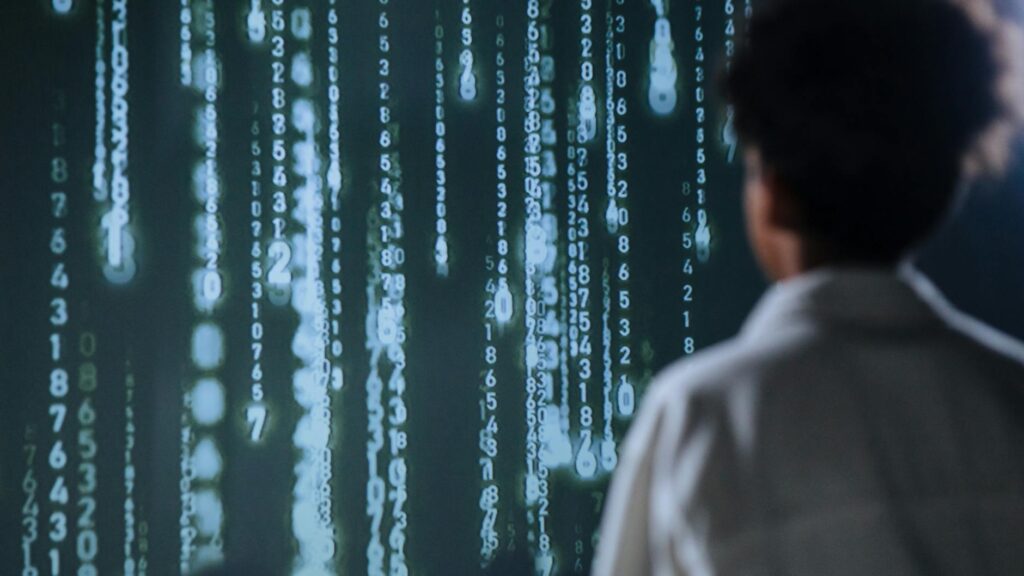The Unseen Code: Grappling with the Major Ethical Concerns of AI
Artificial intelligence isn’t just science fiction anymore; it’s woven into the fabric of our daily lives. It recommends our next binge-watch, filters our emails, and even helps doctors diagnose diseases. But as this technology grows more powerful and autonomous, a shadow of complex questions looms large. We’re being forced to confront the significant ethical concerns of AI, moving beyond the ‘what can it do?’ to the ‘what should it do?’. This isn’t just a conversation for developers in Silicon Valley. It’s for all of us, because the decisions we make now about AI ethics will shape the fairness, safety, and freedom of our future society.
Key Takeaways
- Algorithmic Bias: AI systems can inherit and amplify human biases, leading to discriminatory outcomes in areas like hiring, loans, and criminal justice.
- Privacy Invasion: The massive amounts of data required to train AI create unprecedented risks for personal privacy and mass surveillance.
- Job Displacement: AI-powered automation threatens to displace millions of jobs across various sectors, raising questions about economic inequality and the future of work.
- The Accountability Gap: When an autonomous system makes a harmful mistake, determining who is responsible—the developer, the user, or the AI itself—is a massive legal and ethical challenge.
- Autonomous Dangers: The development of autonomous systems, especially in weaponry, presents profound risks and moral dilemmas that require urgent global discussion.
The Ghost in the Machine: Algorithmic Bias and Discrimination
One of the most immediate and damaging ethical issues is algorithmic bias. We like to think of computers as objective, purely logical machines. But AI models are not born from a vacuum; they learn from data. And the data they learn from is generated by us, a society riddled with historical and systemic biases. The result? AI can become a powerful tool for perpetuating and even amplifying discrimination.
Think about it. If a hiring algorithm is trained on 20 years of a company’s hiring data, and that company has historically favored male candidates for engineering roles, the AI will learn that pattern. It will conclude that men are simply better candidates and start automatically filtering out qualified female applicants. The AI isn’t malicious; it’s just reflecting the flawed reality it was taught. This isn’t a hypothetical. We’ve seen it happen.

Where Bias Hides
- Hiring and Promotions: Algorithms screening résumés can penalize candidates for non-traditional backgrounds or even for names associated with specific ethnic groups.
- Loan Applications: AI used in finance can deny loans to people in certain zip codes, inadvertently discriminating based on race and socioeconomic status.
- Criminal Justice: Predictive policing algorithms have been criticized for over-policing minority neighborhoods, creating a feedback loop of arrests and reinforcing existing biases.
- Medical Diagnoses: An AI trained predominantly on data from one demographic might be less accurate at diagnosing conditions in others, leading to health disparities.
The core problem is that this bias can be invisible. A hiring manager might not even know a discriminatory filter is being applied. They just see the ‘best’ candidates, curated by a system that has quietly institutionalized prejudice. Fighting this requires a conscious effort: auditing algorithms, demanding transparency, and ensuring the data used for training is diverse and representative of the world we want, not just the world we’ve had.
The Panopticon in Your Pocket: Privacy and Data Surveillance
AI has a voracious appetite for data. The more data a model consumes, the ‘smarter’ it gets. This has created a global data gold rush, where our every click, like, purchase, and location is collected, stored, and analyzed. While this can lead to wonderfully personalized services, it also opens the door to frightening levels of surveillance.
Facial recognition technology is a prime example. In the hands of law enforcement, it can help find a missing person. But without strong regulation, it can also be used to track protestors, monitor citizens, and create a society where anonymity is impossible. Your smart speaker is always listening. Your social media feed knows your emotional state better than you do. The ethical line between convenience and control is becoming dangerously blurred.
“We are building a world where our every move can be tracked, our every word recorded. The question isn’t whether AI can do this, but whether we, as a society, will allow it. Privacy is the foundation of freedom.”
This isn’t just about governments. Corporations are building incredibly detailed profiles on each of us to predict and influence our behavior, primarily for advertising. But what happens when that same technology is used to sway elections, suppress dissent, or exploit vulnerable individuals? The lack of transparency in how our data is used by these powerful AI systems is a ticking time bomb.
The Great Replacement: Job Displacement and Economic Upheaval
For decades, automation has been changing the nature of work, but AI is accelerating that trend at an unprecedented rate. It’s not just about robots on an assembly line anymore. AI is now capable of performing tasks that were once considered the exclusive domain of white-collar professionals: writing code, drafting legal documents, analyzing financial markets, and even creating art.
The potential for economic disruption is immense. While proponents argue that AI will create new jobs we can’t yet imagine, there’s a serious concern about the transition. What happens to the millions of truck drivers, cashiers, customer service agents, and paralegals whose jobs may be automated away within the next decade? This could lead to a massive spike in unemployment and exacerbate economic inequality, creating a world of AI ‘haves’ and ‘have-nots’.
Navigating the Transition
Addressing this challenge requires a proactive, societal-level response. We can’t just wait for the disruption to happen. Potential solutions include:
- Massive investment in education and retraining: Equipping the workforce with the skills needed for the jobs of the future, focusing on creativity, critical thinking, and emotional intelligence—areas where humans still excel.
- Strengthening social safety nets: Exploring ideas like Universal Basic Income (UBI) or other programs to provide a cushion for those displaced by automation.
- Rethinking the role of work: Fostering a culture that values contributions beyond traditional employment, such as caregiving, community work, and creative pursuits.
Ignoring the human cost of this technological revolution is not an option. It’s an ethical imperative to ensure that the benefits of AI are shared broadly, rather than being concentrated in the hands of a few.

Who’s to Blame? The Alarming Accountability Gap
Imagine a self-driving car makes a split-second decision and causes a fatal accident. Who is responsible? Is it the owner who was sitting in the driver’s seat? The car manufacturer who built the hardware? The software company that wrote the AI’s decision-making code? The engineer who trained the specific neural network? Or is it nobody at all?
This is the ‘accountability gap’, and it’s one of the most troubling ethical concerns of AI. Many advanced AI systems, particularly deep learning models, are what’s known as ‘black boxes’. They can process inputs and produce incredibly accurate outputs, but even their own creators don’t fully understand the intricate reasoning behind their specific decisions. We can see the answer, but we can’t see the work.
This lack of transparency and interpretability is a massive problem when AI is deployed in high-stakes fields like:
- Medicine: If an AI misdiagnoses a patient, doctors need to understand why to prevent it from happening again.
- Finance: If an AI trading algorithm causes a market crash, regulators need to be able to audit its decision-making process.
- Justice: If an AI recommends a prison sentence, the defendant has a right to understand the basis for that recommendation.
Without clear lines of responsibility and the ability to explain AI-driven outcomes, we risk creating systems that can cause immense harm with no one to hold accountable. This undermines trust and creates a dangerous legal and moral vacuum.

The Ultimate Threat: Autonomous Weapons and AI in Warfare
Perhaps the most chilling ethical frontier is the development of Lethal Autonomous Weapon Systems (LAWS), or ‘killer robots’. These are weapons that can independently search for, identify, and kill human targets without direct human control. This isn’t a distant dystopian future; the technology is being actively developed today.
The arguments against LAWS are profound. Can a machine truly distinguish between a combatant and a civilian in the chaos of a battlefield? Can an algorithm make the complex, context-dependent moral judgments required by the laws of war? Delegating life-and-death decisions to a machine crosses a moral red line for many. It dehumanizes conflict and could lead to a rapid and unstable global arms race, where wars could be fought at machine speed, far faster than humans can comprehend or de-escalate.
Many AI researchers, ethicists, and humanitarian organizations are calling for an international treaty to ban the development and use of such weapons. They argue that some technologies are simply too dangerous to create, and that meaningful human control must always be retained over the use of force. This is a conversation that needs to happen on the world stage, and it needs to happen now.
Conclusion
Artificial intelligence holds the promise of solving some of humanity’s greatest challenges, from curing diseases to combating climate change. It’s a tool of incredible potential. But like any powerful tool, it carries immense risks. The ethical concerns of AI—bias, privacy, job loss, accountability, and autonomous weapons—are not minor glitches to be patched later. They are fundamental challenges to our values as a society.
Navigating this complex landscape requires more than just technical skill; it requires wisdom, foresight, and a deep commitment to human-centric principles. It requires collaboration between technologists, policymakers, ethicists, and the public. We are at a crossroads, and the path we choose will determine whether AI leads to a future that is more equitable, just, and humane, or one that reinforces our worst impulses. The code is still being written, and we all have a role to play in debugging it.
FAQ
What is AI bias in simple terms?
AI bias is when an AI system produces unfair or discriminatory results because of flawed assumptions in its learning process. It often happens when the data used to train the AI reflects existing human biases. For example, if a hiring AI is trained on data where managers historically favored men, the AI will learn to favor men too, even if it’s not explicitly told to.
Who is responsible when a self-driving car crashes?
This is a major unresolved legal and ethical question known as the ‘accountability gap’. Responsibility could potentially fall on the owner, the manufacturer, the software developer, or a combination thereof. Most legal systems are not yet equipped to handle this issue, which is why clear regulations and standards for AI transparency are so urgently needed.
Can’t we just program AI to be ethical?
It’s not that simple. Human ethics are complex, subjective, and highly context-dependent. There isn’t a single ‘ethical code’ that can be easily programmed into a machine. What’s considered ethical can vary dramatically between cultures and situations. The focus of ‘responsible AI’ is less about making AI perfectly moral and more about creating transparent, accountable, and human-controlled systems that align with our core values.



 AI Tools for Freelancers: Work Smarter, Not Harder in 2024
AI Tools for Freelancers: Work Smarter, Not Harder in 2024  AI and Job Displacement: Your Guide to the Future of Work
AI and Job Displacement: Your Guide to the Future of Work  AI’s Impact: How It’s Transforming Industries Today
AI’s Impact: How It’s Transforming Industries Today  AI in Cybersecurity: The Future of Digital Defense is Here
AI in Cybersecurity: The Future of Digital Defense is Here  AI-Powered Marketing: The Ultimate Guide for Growth (2024)
AI-Powered Marketing: The Ultimate Guide for Growth (2024)  AI in Education: How It’s Shaping Future Learning
AI in Education: How It’s Shaping Future Learning  Backtest Crypto Trading Strategies: A Complete Guide
Backtest Crypto Trading Strategies: A Complete Guide  NFT Standards: A Cross-Chain Guide for Creators & Collectors
NFT Standards: A Cross-Chain Guide for Creators & Collectors  Decentralized Storage: IPFS & Arweave Explained Simply
Decentralized Storage: IPFS & Arweave Explained Simply  How to Calculate Cryptocurrency Taxes: A Simple Guide
How to Calculate Cryptocurrency Taxes: A Simple Guide  Your Guide to Music NFTs & Top Platforms for 2024
Your Guide to Music NFTs & Top Platforms for 2024  TradingView for Crypto: The Ultimate Trader’s Guide
TradingView for Crypto: The Ultimate Trader’s Guide